Economics + Design with Deacon Rodda
About the Episode
When we talk about the economy—the formal and informal “rules” that govern how we trade goods and services—do you ever feel like the conversation *has to* be bigger than just talking about capitalism and socialism? Like, humans *must* be more creative than to imagine only two options, right? Do you ever wonder if we might be able to create an economic system that actually benefits both humans and the environment? Or, what would that economy look like?
Well, a designer might start with one important question before offering possible solutions, which is: How do you want to live? See, because, whether you realize it or not, everything around you has been designed. Which means that everything around you answers the question “How do you want to live” in some way. Your morning routine, your car, the way we vote (or are kept from voting), the structure of the latest article you read online. All of it has been designed to influence your behavior in some way—and you get to say whether it’s been for the better, or for worse.
The economy is no different. It’s been designed to result in certain ways that we live. Often, as you’re likely aware, to the benefit of some, but rarely for the benefit of all. So, how is it designed? What’s working? What’s not working? And how might we build a system that works for everyone?
My guest in this episode is Deacon Rodda, who talks about it with me.
Episode Details
About Deacon
Deacon Rodda is a permaculture theorist and designer who has been working with social change organizations in Denver for more than two decades. Deacon has spearheaded localization initiatives, permaculture research, education non-profits, and social benefit business ventures. Currently, Deacon is focused on establishing a truly egalitarian heirloom currency and contributing to publications on social and ecological well-being.
What We Discuss
Imagining economic options beyond capitalism and socialism.
Whether advancements that make society safer have actually made them better.
How we create money in society and whether money is “neutral.”
What Deacon feels isn’t working in our economy right now.
How economics and climate are as intertwined as tree roots and mycelia, and whether we’ll change the economy fast enough to survive climate collapse.
Designing an economy that’s good for humans and the environment.
The immorality of compounding interest.
The role of design questions in creating new economic systems.
And, what two values Deacon believes are foundational to building the economy he wants to see.
Sources Mentioned
Charles Eisenstein’s writing on “ascentionism,” or the faulty idea that human culture has only continued to get better, can be found in a lot of Charles’ writing but is specifically spoken about in The Ascent of Humanity.
Later in the interview, Deacon mentions the several ideas that Charles points to as better economic designs we could implement. If you’d like to read those, they’re largely found in his book, Sacred Economics.
The Favor Solutions Network, a complementary currency that Deacon is working on.
Robert Reich is the popular neoliberal economist that Deacon refers to, but I think he’s more well-known on Twitter.
Here’s a breakdown of Keynesian Economics, developed by John Maynard Keynes.
I couldn’t find a photo of Bird scooters filling landfills, but did find this equally depressing article about how people keep tossing electric scooters into rivers and lakes.
Here’s a link to Joanne Poyourow’s work on economic resilience.
Here’s Juliet B. Schor on Twitter and her online profile at Boston College.
Shoutout to Ela Family Farms, here in Colorado.
As in other episodes, here’s a link to Wendell Berry’s Art of the Commonplace.
The Master of the Hidden Storehouse was published along with The Master of Demon Valley in a combined volume called Thunder in the Sky. Because both books were anonymously written, the exact relationship between the two texts is not entirely clear. They are both early Taoist canon and discuss the same subjects but in totally different formats.
Altered Carbon on Netflix
Sir Thomas More’s Utopia
The article that speaks about how a lot of people start with the tool or the strategy and not with the “why” is this piece, called “Let Christopher Alexander Design Your Life.”
Google “Viktor Frankl” to find just a wealth of knowledge on logotherapy and all of his writing and speaking.
The fellow with the 11-1/8” resume that Deacon mentions is Errol Gerson.
My interview with Andreas Weber did, indeed, come out before this conversation with Deacon, and you can find it here.
And, Kim TallBear’s Substack is called “Unsettle,” not “Unsettled.” And you should definitely listen to my favorite podcast interview of hers, on All My Relations, called “Decolonizing Sex.”
Or, Listen & Subscribe On
Spotify
Stitcher
Or wherever you get your podcasts.
Find Deacon Online
Website
Instagram
Patreon
Favor Solutions Network
Get More This Plus That
Sign Up for the Newsletter
Follow on Twitter
Follow on Instagram
Credits
Audio engineering by the team at Upfire Digital.
All of my music is provided by the in-house musicians at Slip.stream.
Episode Transcript
Coming soon, hopefully! Would you be willing to help? Email me at brandi@thisplusthat.com!
